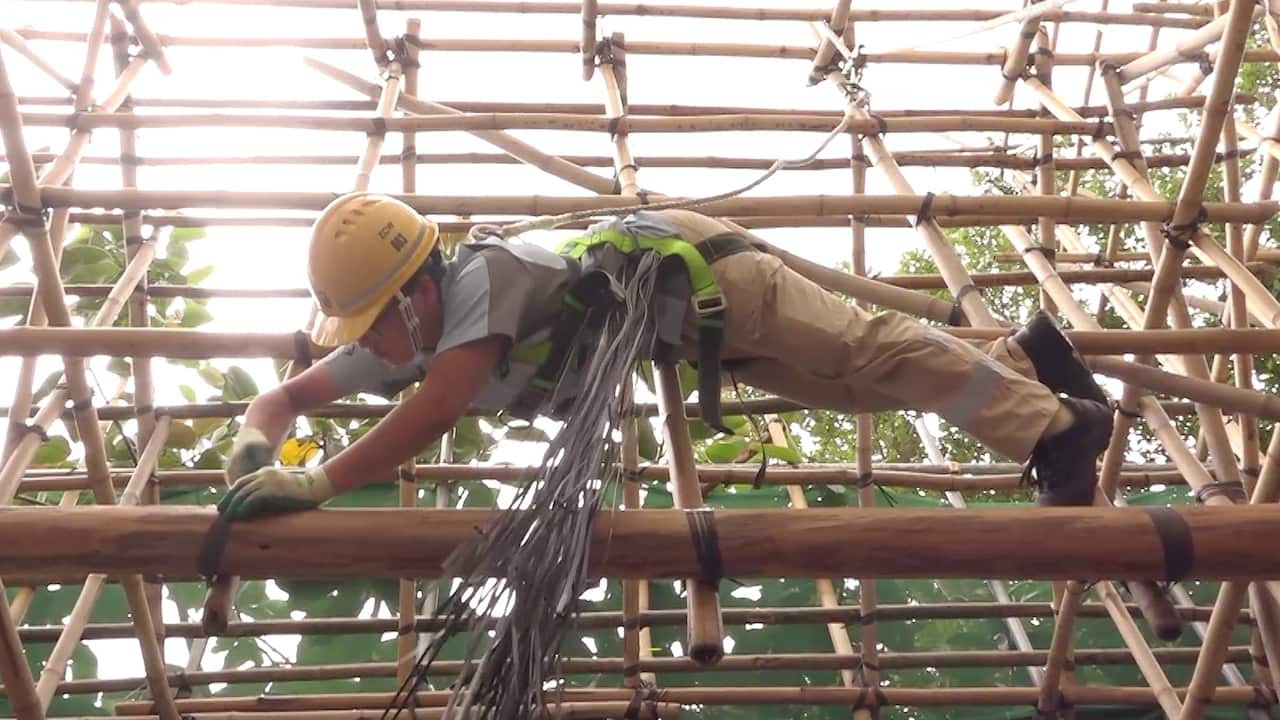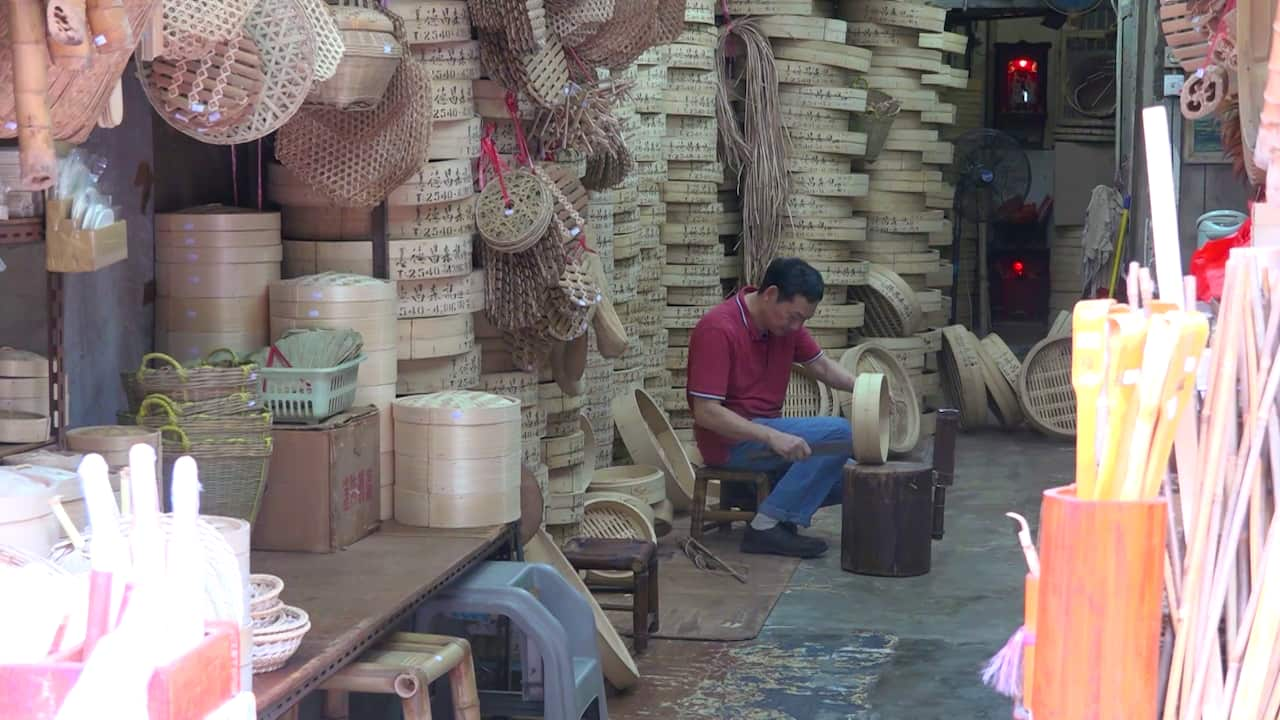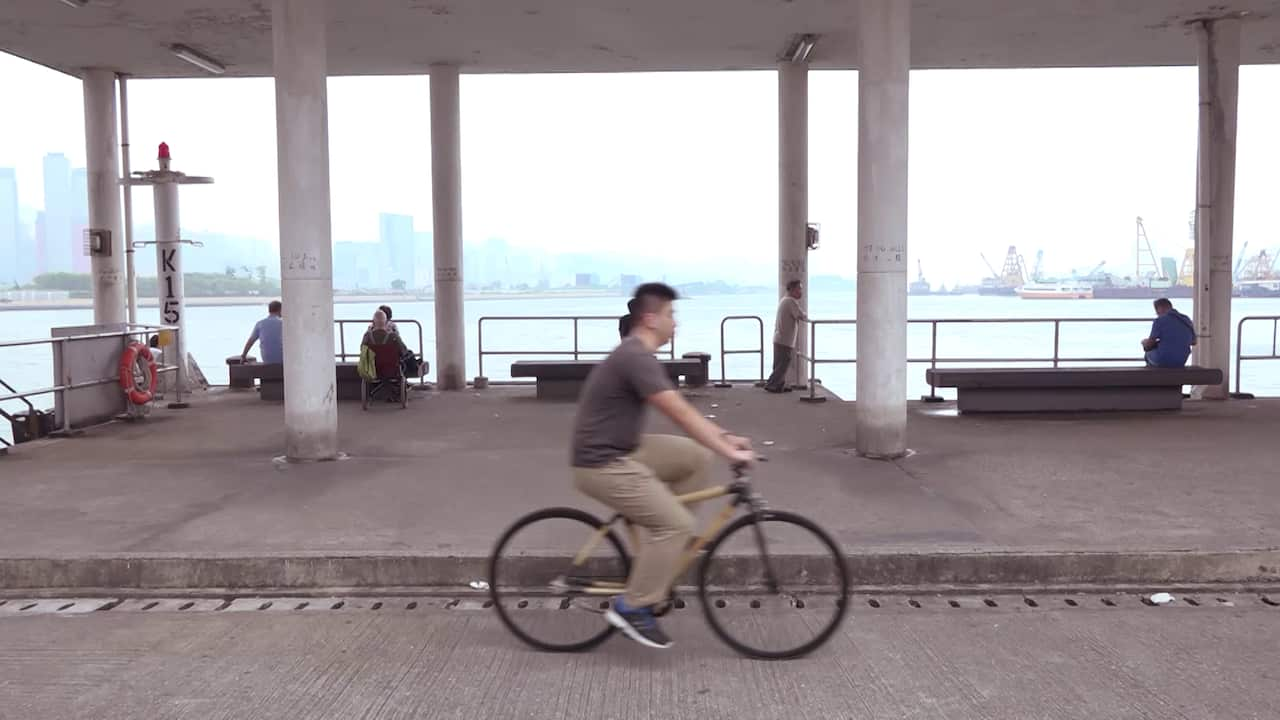Bamboo is fastest growing wood-based plant in the world, growing up to a metre a day, making it fit for sustainable farming. It’s light, sturdy and cheaper than metal, making it the perfect material.
Ancient Asian societies knew this centuries ago and used bamboo as scaffolding structures to build their architecture. In fact, the Great Wall of China was built using bamboo scaffolding.
Today, this construction skill is mostly banned in China due to safety reasons. Despite the risks, it’s still common practice in Hong Kong. However, this skill is in short supply of apprentices. Even though it’s well-paid, the younger generations are less willing to do risky work in temperamental weather conditions.
Hanging off staggering heights, it’s easy to lose one's footing and become seriously injured. One needs a strong back to do the work.

Scaffolding trainee Li Ling says, “Once I lost my grip in an upside down position. My least favourite part of bamboo scaffolding is when you work in an almost upside down position with your body bent and legs clinging to horizontal bamboo ledgers.”
So Yu Hung, the Vice Chair of the Scaffolders Association, believes it’s important to maintain this culture. “I think if we do not cherish and preserve this tradition, and if people discriminate against it, it will disappear after 20 to 30 years.”
Other traditional bamboo-related sectors are also becoming scarcer. Tuck Chong Sum Kee is the only handmade bamboo steamer retailer left in Hong Kong. Restaurants across Asian order steamers from this shop, as they prefer it over the steamers mass-produced in factories.

Lam Ying-Hung is the 5th generation of his family to be running the store. Bamboo is in his blood. “I already learned how to craft bamboo steamers when I was a child because there was a limited range of toys available,” he says.
While traditional uses for bamboo are dwindling, entrepreneurs are finding innovative ways to make use of the plant. Billy Wong from Bamboo Verdee Living uses bamboo to create contemporary products from sunglasses to towels, to bamboo flooring. Bamboo flooring is her most popular sale item, with over 500 offices and homes in Hong Kong having already installed it.

The company Boo Cycle is also tapping into the bike culture in Asia and creating bamboo bikes, which are lighter and more durable than regular bikes.
These innovative companies show that the centuries-old bamboo industry has lasted this long and there’s no sign of it slowing down anytime soon.
Want to find out the secret to small business success? Tune into #BizSecretsSBS at Sundays 5pm on SBS, stream on SBS Demand, or follow us on Facebook, Twitter or Instagram.
Sharing business secrets of inspiring entrepreneurs & tips on starting up in Australia's diverse small business sector. Read more about Small Business Secrets
Have a story or comment? Contact Us


